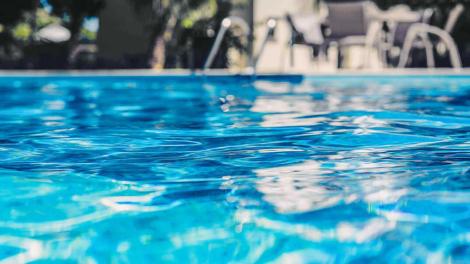Relaxing in a pool or spa is one of the best relaxing ways. However, must you drown in chemicals on your swimming pool water for hot tub maintenance?
Absolutely not!
Chemical substances clean hot tubs, but the consequences of using them are not worth it. Overexposure to toxic chemicals risks the health of your skin and body, and you can damage the walls of your tub.
This is why we will explore this article’s various pool and swim spa chemical alternatives. Let’s explore natural and safe options together!
What Are The Best Pool And Spa Chemical Alternatives?
1. Baking Soda
If you want to clean your pool using a household item that is readily available to you, then baking soda might be a good option. Making a paste using this substance and a small amount of water would give you a non-abrasive, safe, and natural cleaner.
One of the most common issues with using chemicals in outdoor pools or spas is the extent of damage that they cause. However, using a harmless cleaner such as baking soda can help you prevent this issue. Additionally, you will be able to balance the alkalinity levels of the spa.
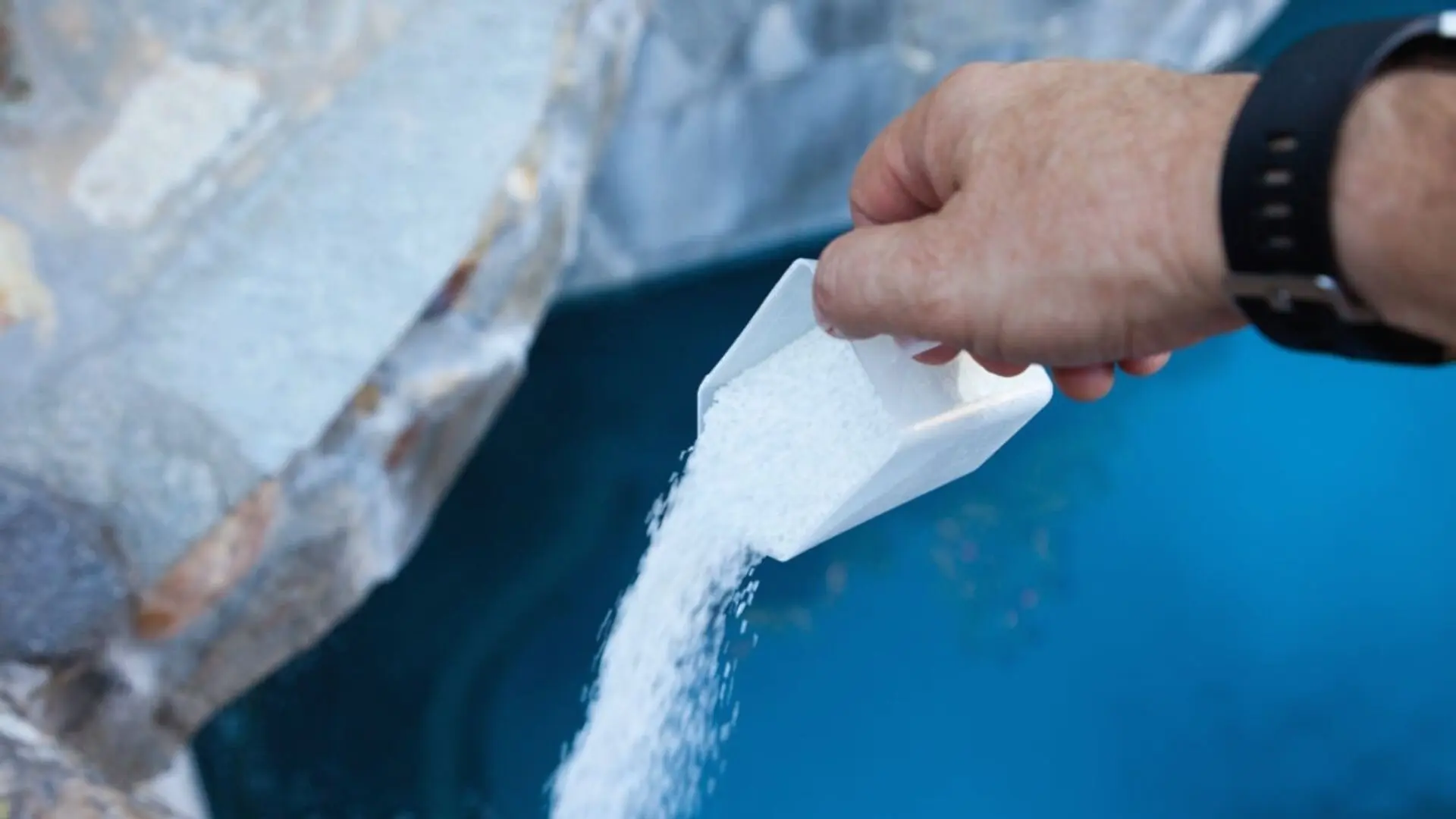
2. Borax
Borax is a great laundry booster, but did you know it is also a good cleaner? You can use this product to clean off the residue in your pool naturally and safely without adding any harsh chemicals.
All you need to do is make a paste by mixing Borax with water. Next, use this mixture to clean and scrub any debris that might be stuck in the different regions of your spa pool. Additionally, if you are struggling with low pH levels in your pool, Borax can help since it is basic.
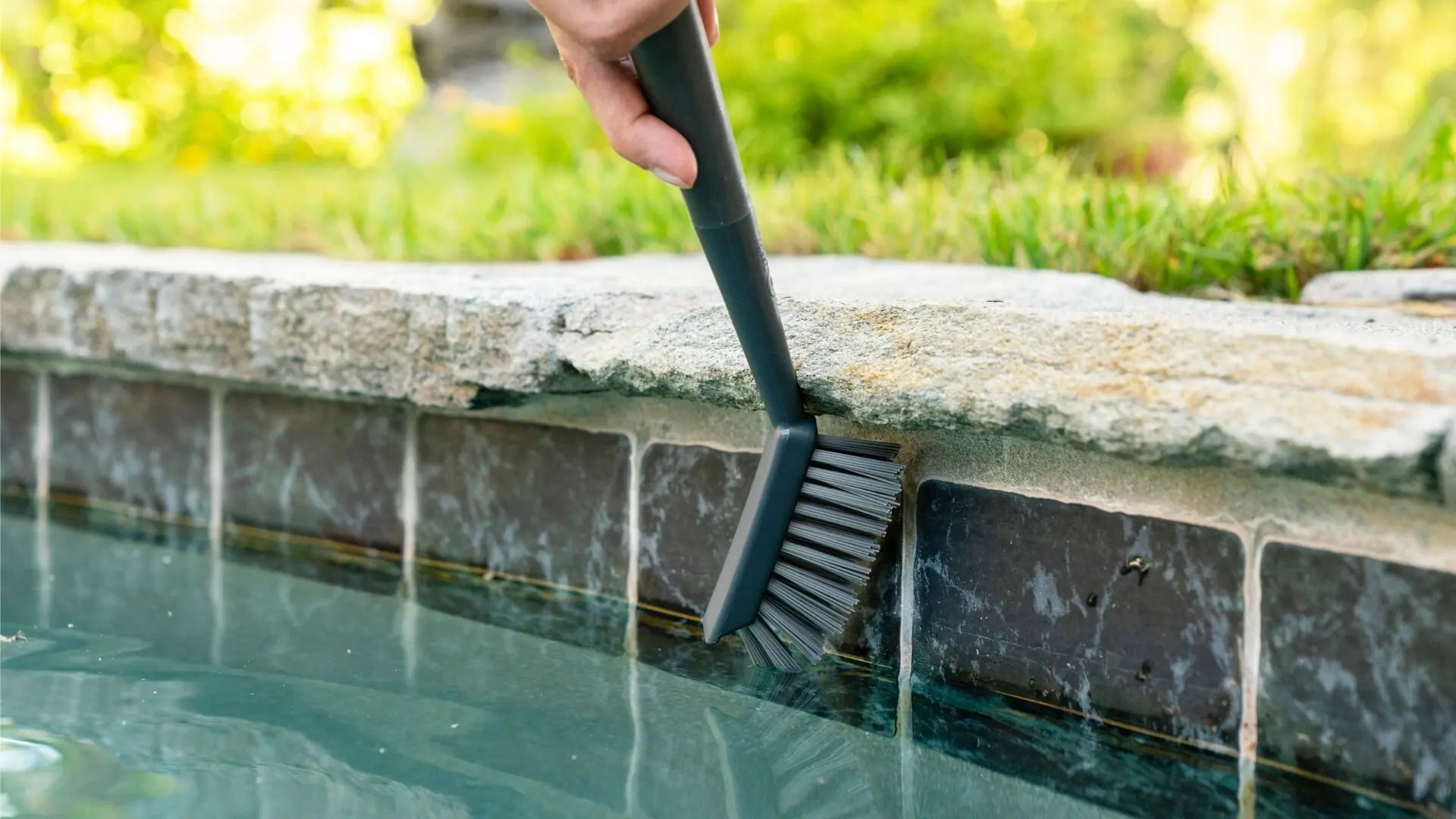
3. Olive Oil
If you live with children, you’ve likely encountered stains on the pool deck. You are not the only one facing this issue, and now there is an effective solution—olive oil!
While you shouldn’t use olive oil below your pool’s waterline, it can be a good cleanser when removing spots from the pool tiles and floors. The oil loosens the sticky build-up, and then you can wash it away using soap and water.
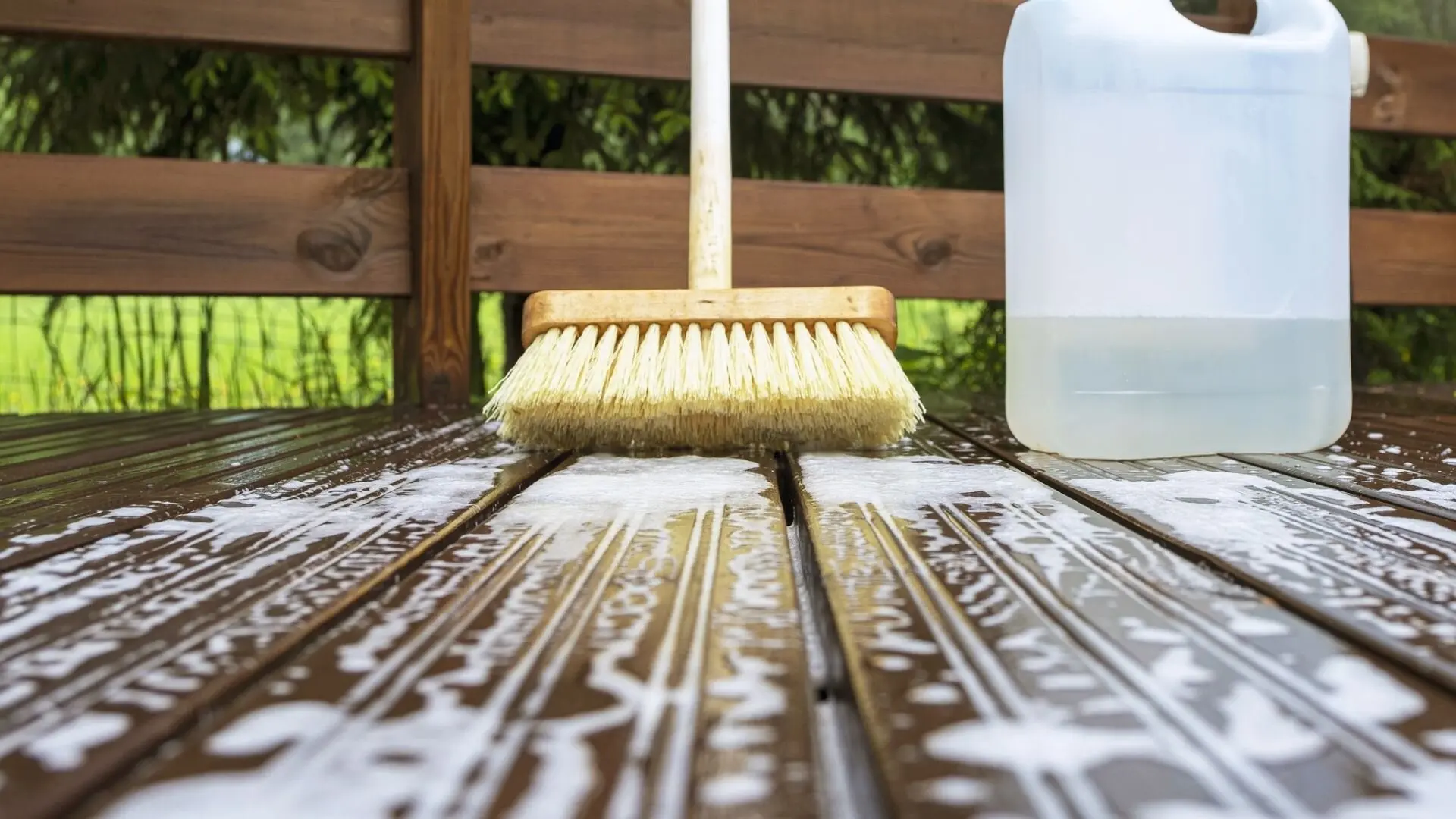
4. Vinegar
Buildups have the potential to make even the prettiest swimming pools ugly. Hence, if you are struggling with issues like calcium build-up in your pool, using white vinegar is the best way to eliminate it.
The acidic nature of vinegar can help you wipe off the calcium build-up from the pool or spa. Mix white vinegar and water in equal amounts to create your natural cleaner!
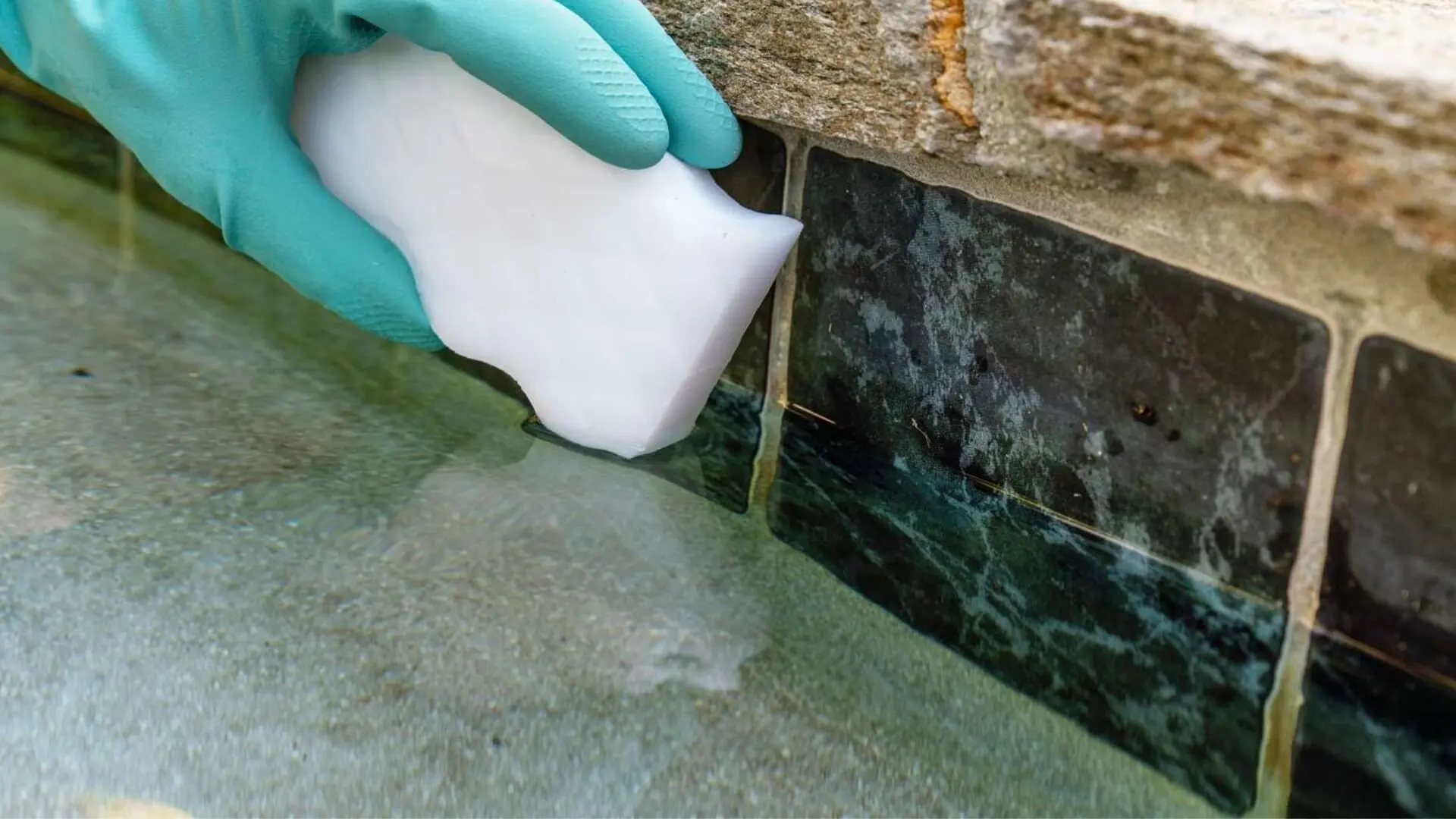
5. Lemon Juice
While using natural substances to clean your swim spas or saltwater pools seems like a great idea, the most common issue is the foul smell that might accompany it. However, you don’t need to worry about using lemon juice to clean your pool.
The citric acid in lemons is an excellent cleanser for metal surfaces. Hence, if there is rust on your pool’s tiles or metal components, then it is best to use this natural cleanser. Lemon juice can also clean out any debris and mineral build-up. All you have to do is mix lemon juice with enough salt to make the mixed slurry.

6. Switch To Saltwater Hot Tubs
Adding chlorine to your hot tubs is not a good option because prolonged exposure to this chemical can irritate your skin, eyes, respiratory system, etc. Hence, it is best to switch to an option that does not require you to add this chemical in the first place. Fortunately, saltwater hot tubs exist!
The salinity levels in such spa pools are balanced, and the chloramine level is low. You only need to add salt to your pool as and when required.
A saltwater system synthesises chlorine naturally by breaking down the salt in the water. This breakdown cleans the pool efficiently, naturally, and safely. Saltwater hot tubs are also cost-effective in the long run and provide numerous health benefits.
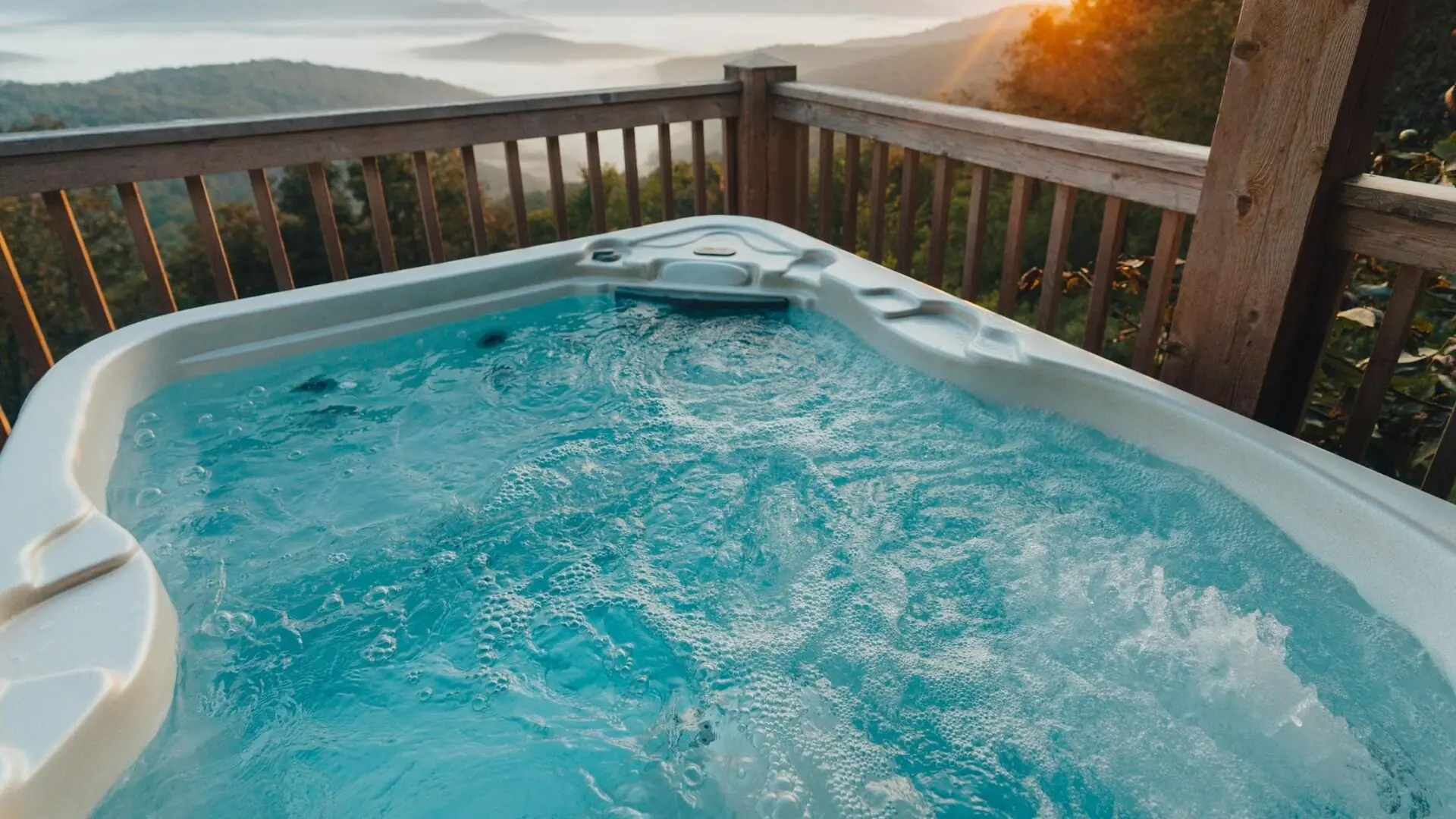
7. UV Light Systems
UV pool systems represent a state-of-the-art approach to pool cleanliness. These systems use ultraviolet light to kill organic contaminants, ensuring your pool remains fresh and clear without the constant need for chemical additives. UV systems are excellent at maintaining water clarity and preventing the growth of algae and bacteria.
8. Hydrogen Peroxide
Adding hydrogen peroxide to the list of alternatives offers another robust solution. This compound is a powerful oxidiser, breaking down organic contaminants without leaving harmful residues behind. It’s beneficial in pools and spas to maintain clean water. It’s a gentler alternative to chlorine, reducing the risk of eye and skin irritation.
By exploring alternatives like UV light and salt systems, you can reduce reliance on traditional chlorine and other pool chemicals, minimising potential health risks from chemical exposure. Maintaining your pool or spa with these natural methods can provide a safer, more enjoyable experience for you and your family.
Making The Switch To Natural Pool Cleaners
While chemicals are widely used to clean pools and spas, they can harm you in several ways. They can irritate your skin and eyes and damage your hot tubs. So, switching to natural cleansers that do the job is also essential.
Some of the best natural and safe alternatives to chemical pool cleaners are baking soda, Borax, olive oil, vinegar, lemon, and bromine. You may also consider switching to a saltwater hot tub since it does not require cleaning chemicals.
However, it’s important to note that maintaining a pool or spa requires some chemicals. A pool sanitiser, either chlorine or bromine, is necessary to kill bacteria and prevent the growth of organic matter. Pool filters also require chemicals like cyanuric acid to function correctly. Other chemicals may be needed to maintain proper pH levels and water chemistry.
The Pool Co. is the one-stop solution for all your pool service requirements. Whether you need a professional to clean your pool or are ready to renovate your swimming pool, we have it all covered. Our experts can guide you on the judicious use of spa chemicals and help you find the right balance between natural and chemical cleaners for your pool. Give us a call today to hire the best pool builder in Sydney!


